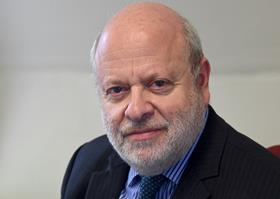There has been a predictably hostile reception – at least in under-the-line replies in the Gazette, if that can be considered a representative sample - to the comments of Lady Justice Hallett, vice president of the Court of Appeal Criminal Division, on future funding of legal aid cases, in a speech she made at the 125th anniversary of the Bar Council.

I haven’t been able to find a copy of the speech, but the Gazette reported her as saying the following: ‘If LASPO is not to be repealed, we have to explore new ways to provide representation for the most vulnerable in their civil and family claims.’
So far as I can see, she did not call for a levy on big City law firms, but she did invite the City to explore the possibility of funding a contingency legal aid fund, on the grounds that money can now be made from litigation funding (see here for an explanation of the advantages and disadvantages of such a fund).
Some of the hostile responses centre on the fact that that no plumber or builder undertakes pro bono as many solicitors do, indeed the City firms do it on a very generous scale, and that lawyers should be treated like any other business. The fact that solicitors work in the justice system does not make them responsible for its funding.
The problem with this line of argument - apart from the fact that a builder wrote in to say that he and other colleagues had been to Romania and Africa to build schools, hospitals and community centres for free, and that they regularly help elderly neighbours – is that we solicitors spend most of our time arguing that we are not like other trades and professions, because we are part of the administration of justice and are bound to defend the public interest.
This argument is used constantly, for instance, in defence of legal professional privilege: don’t demand that we tell on our clients if they have been money laundering, avoiding tax or breaching human rights, because we are not like everyone else, we are part of the justice system and are subject to principles that are higher than merely commercial ones. Our clients have certain basic human rights, and we must defend them against governmental (and other) actions.
It seems to me that we cannot have it both ways: on the one hand, argue that we are not to be treated like plumbers and builders - or, more to the point, accountants - because we have higher duties within the justice system, and yet demand to be treated like plumbers, builders and accountants in relation to other aspects.
It is true that defending our clients is quite different to being required to fund some of them. But it is hypocritical to argue that we are not to be mentioned in the same breath as other trades and professions, and then argue the opposite a moment later.
Personally, I am pleased that Lady Justice Hallett has raised the subject of legal aid funding. Of course, I fully support the principle of a properly funded government legal aid system, and deplore the consequences of recent government actions. But will we carry on deploring, and only deploring, forever - even if legal aid is never restored to its former levels? At what stage will we invoke our special role in the justice system and begin exploring other avenues, even if it lets the government off the hook?
There is a useful example from Japan. Of course, Japan is a very different country with different traditions. But it had advice deserts like we do, caused in its case by remote rural areas which had no lawyers or only one. In 1996, the Japan Federation of Bar Associations (JFBA) began a fund which established legal consultation centres and public offices in such districts, in cooperation with local bar associations, regional federations of bar associations, and municipalities. By the end of March 2018, there were 118 such offices. The JFBA also provides financial support to attorneys who start practices in such districts.
And how is this funded? Cover your eyes and put your fingers in your ears: since January 2000, the JFBA has been collecting special dues from its all members to tackle the issue. On the 10th anniversary, the JFBA proudly announced that, though there had been 47 no-attorney areas in 1996, it had by 2010 successfully eliminated all of them, and that the number of one-attorney areas had been reduced to five.
Our profession is one of great contrasts, with extremely rich firms at one end, and struggling ones at the other. Similarly, the clients of those firms vary hugely between the extremes.
How many more advice deserts must flourish before we agree to explore the currently unthinkable?































4 Readers' comments